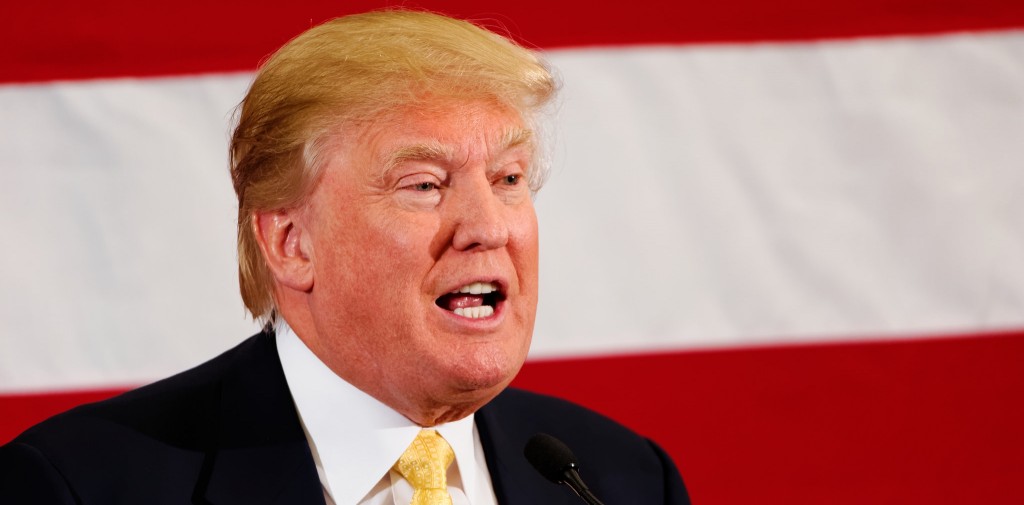
EspañolPopulists are on the rise in the United States. A year ago, the thought of Donald Trump or Bernie Sanders having any degree of success at the voting booths would elicit laughs at parties in Washington.
Trump placed second in the Iowa caucus and Sanders nearly tied Hillary Clinton in votes. Outright populists, left or right, might actually win the presidency. The last time that happened was Woodrow Wilson’s reelection in 1916.
For the last century Americans have been insulated from the populist waves that rocked the world. America never saw socialism of the sort that ruled nearly every other country on Earth at some point in the 20th century.
Our industries may have been regulated, but they were never nationalized. We may have some social housing, but it never reached the scale of major European cities. Indeed, part of the reason the United States grew so quickly for so long is that it escaped the damaging economic extraction needed to fund populist welfare states.
American democracy was special; its federalism made it far more complex than unitary parliamentary regimes elsewhere. Making major changes was hard. It took a crisis on the scale of the Great Depression to build the framework for the limited welfare state we have today.
This election marks a change. Ross Douthat at the New York Times aptly terms the wave a “revolt against decadence“. It’s a revolt against the normal way of “muddling through”, as he calls it.
Americans are bored of a society that changes at a very slow pace. They want more of something, even if they can’t determine what it is exactly. The demand more bold action. Any action, really. It could be action against immigrants or against major banks, or another war in the Middle East.
The people are bored with waiting for the “right moment” to bring sweeping changes to the country. The country is jaded, and jaded peoples have long sought sweeping change.
We know that oppression is not enough to beget revolutionary change on its own. In many democracies, someone, socialist left or strongman right, promises to rid the population of stagnation and misery. When things get bad enough, they get elected, pass reforms, redistribute what rents their economies generate to their supporters. Wash, rinse, repeat. This is the economic history of many Latin American countries, from Chile to Argentina to Venezuela.
[adrotate group=”8″]Yet there is hope, and that comes in the very system that the populists are rebelling against. A single person can’t unilaterally change all that much in American democracy. A Sanders presidency without sizable majorities in both houses of Congress would pass exactly zero major expansions of the welfare state.
Trump could land us in another military quagmire, but Ted “carpet bomb” Cruz or Marco Rubio seem to be just as willing. While the checks have eroded since the founding, executive power in the United States has its limits.
Making changes in American democracy is a complex process. It takes more than the presidency, whether citizens like that fact or not. The Tea Party showed what happens when a populist wave hits Congress, but even that has fizzled in a few short years. Occupy Wall Street, on the other hand, never even elected a Congressman.
Taking control and making the “bold” changes which populists demand requires a semblance of unitary control that American federalism rarely provides. Odds are that, at some point in the political process, somebody will be there to throw sand in the gears of any reform effort. We “muddle along” because that’s what makes American democracy special.
American federalism is one of the most complex political systems in the world. Its reliance on state and local governments to wield real power has few parallels outside of Canada and Switzerland. Yet, unlike these countries, the federal bureaucracy holds massive sway as well.
This combination of a strong “fourth branch” of government and a complex federal structure created nearly unparalleled economic growth in the 20th century and insulated the nation from the damage brought by mass political extraction of citizens’ economic resources. Yet that came at a price.
Disillusioned Americans, whose rise will be the story of 2016, should understand this. We muddle through not because that is better than experiencing waves of boom and bust, but because that’s what our democracy allows.
And we should be thankful for that. It seems to have worked, so far.
 Versión Español
Versión Español












